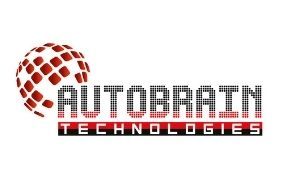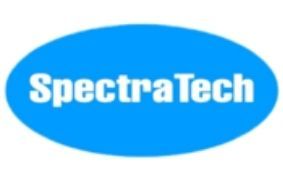Overview
ECO Mark Scheme was established by the government of India in the year 1991 by the Bureau of Indian Standards (BIS). The scheme was made to identify the products which are environment friendly and ecologically safe and adhere to the BIS guidelines. It is used to encourage the public not to use any products that can be harmful to the environment and damage the ecosystem.
The ECO Mark Scheme is applied to all types of items such as Household and commercial products. The Industry and Commercial companies can apply for the ECO Mark license online.
What is an ECO Mark Scheme?
The ECO Mark Scheme is a labelling of eco-friendly products. The mark helps to identify the products that are decomposable and not going to harm the ecosystem of nature. The other products that hurt the environment are totally against Sustainability.
The ECO Mark Scheme was created as a good initiative of the companies to reduce the environmental issues of their products. It also allows the consumer to differentiate between environment-friendly products and other harmful products. The products are judged based on their quality and other parameters.
Importance of ECO Mark Scheme in India?
The ECO Mark Scheme helps the consumer to identify the difference between the products that meet the environmental criteria, are Biodegradable and able to be recycled or not.
The ECO Mark Scheme tell which are the products that are non-renewable resources.
The ECO Mark Scheme is not only applicable to the final product, but the raw materials that are being used to create the product also fall under the Scheme.
The ECO Mark Scheme directly helps the Environment to grow and develop and allows us to categorize the materials that are suffocating the environment.
The mark is best for Consumer trust because it helps the customers who are looking for eco-friendly products.
Products covered under the ECO Mark Scheme
The ECM Mark Scheme covers the following products:
Paints
Batteries
Food Items
Soap and detergents
Food Additives
Wood Substitutes
Aerosols and Propellants
Electrical goods
Leather
Packing material
Plastic products,
Cosmetics
Architectural good
Objectives of the ECO Mark Scheme
The objective of the ECO Mark Scheme is:
It encourages customers to purchase eco-friendly parts
It pushes the companies to promote their products under the criteria of BIS and to produce minimum to zero non-sustainable products.
The big picture of this Scheme is the betterment and growth of the Country’s Sustainable and biodegradable products and management.
It also provides rewards and promotes the company if their genuine effort in producing the goods helps in favour of the environment.
Benefits of the ECO Mark Scheme
The Benefits of the ECO Mark Scheme are:
For Environmental Conservation: The scheme helps in adopting sustainable practices in production.
Market Classification: The scheme allows the manufacturers to identify their products in the market.
Consumer Confidence: The mark helps consumers with reliable and authentic environmentally friendly products.
Brand Reputation: The mark indicates the commitment to sustainability and wins the trust of the Consumers.
Regulatory Compliance: It ensures that the manufacturer is following the environmental regulations of BIS.
Cost Efficiency: The ECO Mark certification can lead to long-term financial savings for the manufacturer.
Documents for the ECO Mark Scheme
The documents which are required to get the ECO Mark Certification are:
Incorporation Certification of the company (if any)
Memorandum of Association (MOA) and Articles of Association (AOA).
Certification from the State Pollution Control Board
Scheme of Testing and Inspection (STI) formal written consent
Product details in Chronological order
Lab report and detailed information
NABL Accreditation
Sample Details
All products have individual application
Process of ECO Mark Scheme
ECO Mark is governed by BIS, it provides its registration logo by filling out the application under the ECO Mark Scheme.
To file for ECO Mark, the following procedure has to be followed:
1. Filling of Application- The application to register and get the certification is available in an offline mode only, the Manufacturers must file the application for the ECO mark under the concerned authority of BIS.
2. Payment of Fees- The payment of fees once the application is submitted to the BIS authority.
The fee charged by BIS is for application, annual license, testing samples, marketing fees and renewal of application fees.
3. Inspection of the Area- Once the Application and the fees are submitted, the BIS will inspect and verify the premises where the product for ECO Mark is manufactured. The inspection includes the inspection of processes, facilities and machines.
4. Product Testing- The sample of the product will be tested by BIS to verify if it is eco-friendly or not. The sample of the product will be sent to a separate laboratory, usually NABL-accredited.
5. License Production- When the product is verified and confirmed thoroughly by the BIS, it will grant the license to the Manufacturer for the use of ECO Mark. Bis usually grant licenses for a minimum duration of one year, after the expiration of the license, the Manufacturer needs to renew the license.
Note: BIS can reject, terminate or withdraw the license in case of any misleading information or any valid reason.
Why eStartIndia for Eco Mark Scheme?
eStartIndia is the leading Company for Legal and Business-related guidance. The ECO Mark Scheme not only helps the consumers to contribute to eco-friendly product consumption but also helps the Environment to be generous and sustainable. Here, eStartIndia provides legal assistance to the Companies to get the ECO Mark Certification.
eStartIndia Legally guides and make reports of the documents that an organization or a Company require to register their product(s). The ECO Mark certification aims towards eco-friendly products. Hence, there will be a thorough inspection of all the documents and procedures by the experts in the field, and then the application will proceed for the Registration, Verification and certification.
eStartIndia follows all the guidelines by the Bureau of Indian Standards Central Pollution Control Board (CPCB), and it will also look after the mandate of the Quality Control Orders, which are issued by the Central Government.






































